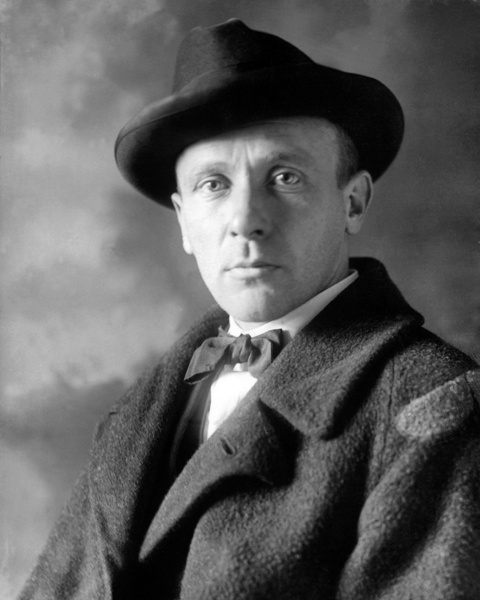Мы продолжаем напряженно работать, чтобы улучшить наш сайт и перевести его на другие языки. Русская версия этой страницы еще не совсем готова. Поэтому мы представляем здесь пока английскую версию. Мы благодарим вас за понимание.
Михаил Булгаков
Mikhail Bulgakov finished his masterpiece The Master and Margarita just before he died - well... he almost did. Some loose ends or antagonisms in the storyboard are showing that the author died a little too early.
But it is, by far, one of the best novels ever written. And perhaps it's exactly those imperfections which give the book its unique charm. Because, once you start reading it, you lose your strength to resist. You let it drag you into a world which lasts forever and on which Bulgakov worked for twelve years. He knew how to interweave the tragics of his infested fatherland with those of his personal life as a writer who was not allowed to write. The first publication of this work in western Europa in 1966 made him world-famous in one go.

Today Bulgakov is seen as one of the best Russian writers ever, and The Master and Margarita is still the most popular novel in Russia. In a survey in September 2009, the ranking of the best books was headed by The Master and Margarita. It was mentioned by 16 % of those interrogated, way before the others. For 7% of Russians the best book was Lev Tolstoy’s War and Peace, while Crime and Punishment by Fyodor Dostoevsky was the best book for 3 % of the Russians. It is interesting to see that Mikhail Bulgakov subjugated the hearts of all generations of Russians, whereas the works of Tolstoy and Dostoevsky were more frequently mentioned by respondents older than 35 years.
With the menu on the right you can browse Mikhail Bulgakov's biography and an overview of his works, both the original Russan versions and the English translations. We have tried to make a complete bibliography of all the works written by Mikhail Bulgakov: his famous novels and plays, but also hisstories and feuilletons - today we would say columns -, published in various newspapers and magazines. Bulgakov did not always sign his texts by his own name. Especially for his feuilletons in Gudok, the newspaper of the railwaymen, he used funny pseudonyms like М. Мишев (M. Mishev), Ф. Икс (F. Iks) or М. Ол-Райт (M. Ol-Rayt), so sometimes we had to do some research to find out who was behind these names.




